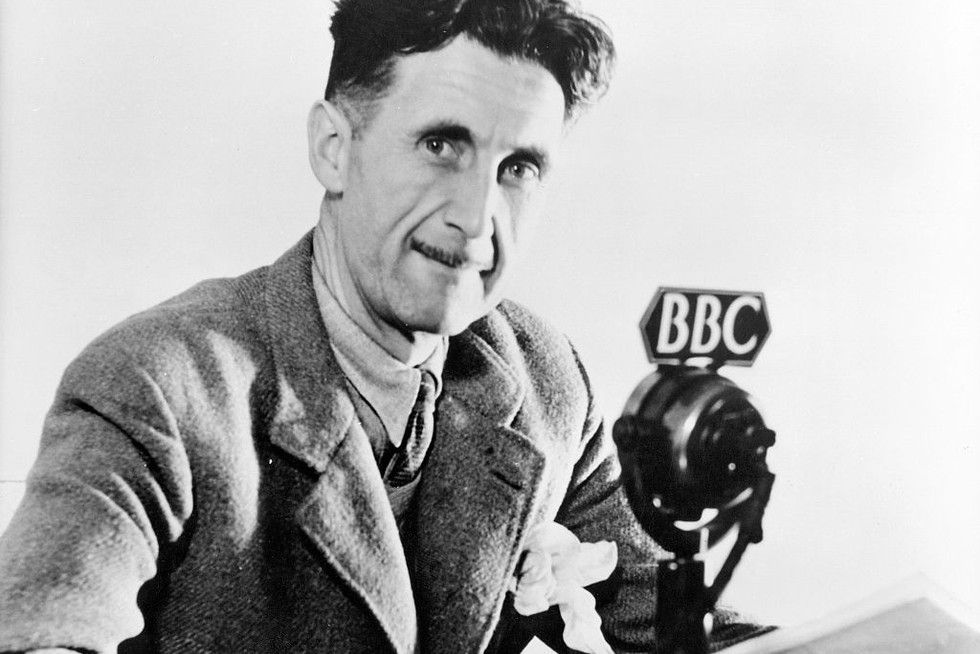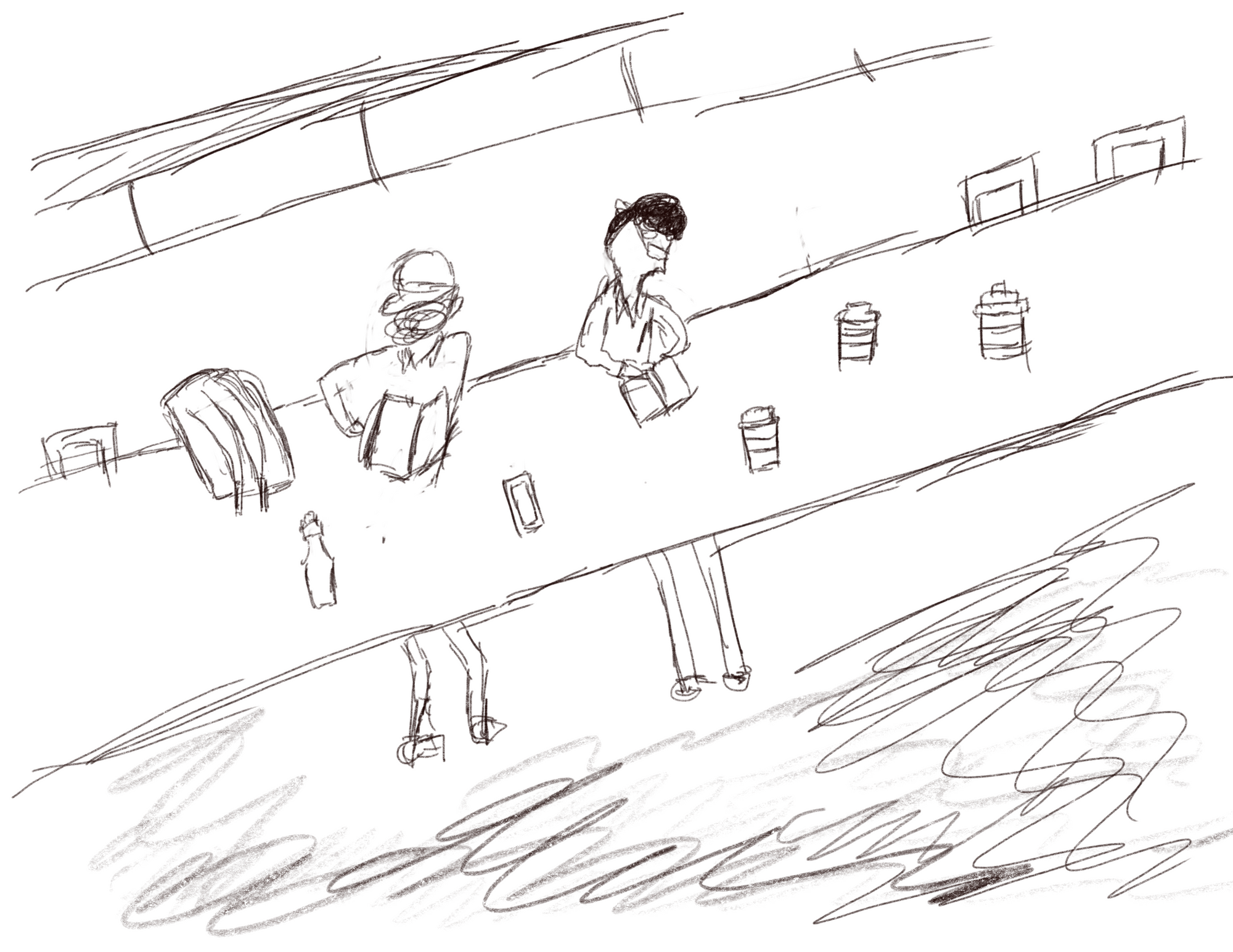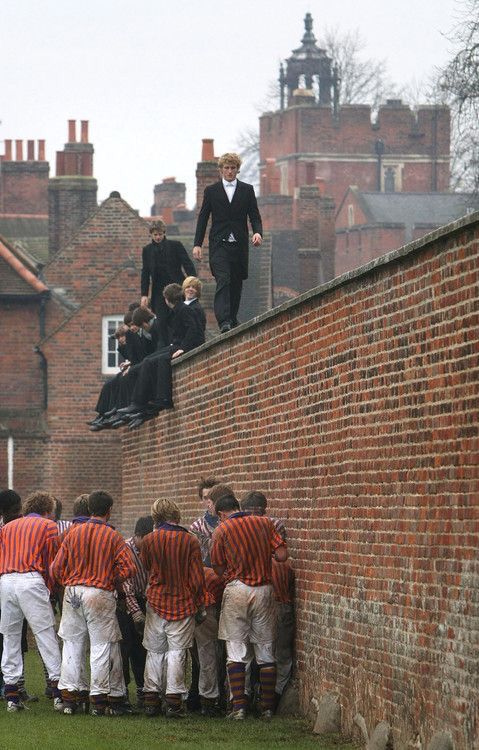POV: George Orwell Is Your Political Science Professor (Part 1)

I. Intro. Why Politics?
I find the word “politics”, or “civics rights”, as sexy as a real estate advertisement in the newspaper my 80-year-old grandpa reads. And overall, when it comes to politics, I’m not by any chance an expert on it. In fact, I’m somewhat ignorant. In my country, politics is fairly a taboo topic to talk about. People either get aggressive or uninterested when you bring it up. And most of the time, political policy has very little impact on people’s daily life. Things like protests, violence, multiple parties, and political media-driven campaigns don’t happen here under the operation of my country. The government takes care of the basic needs (shelter, food, education, healthcare) pretty well, and the citizens just pay taxes and live our life. There was a time, just a few years ago, I didn’t even know the name of the Prime Minister, simply because it was so irrelevant to my life. As a result of living in a peaceful environment, which I’m very grateful for, I didn’t care about politics everywhere in the world for quite a long time.

But recently, when things become so crazy, like the war between Russia and Ukraine, the Covid-19 pandemic, women's conditions in Iraq, US politics in general, and more chaotic things keep happening, I can’t help but start to educate myself on politics and other aspects of society, because either you want it or not, politics really determines the socio-economic model of every country.

And I wonder why such an important concept isn’t taught properly at school, or make it overcomplicated that people often associate politics and civics rights with boring and dry. But when we think about politics, as in thinking about how power works, and how government operates the power on the people, it becomes so much more aspiring and relevant to our life. And you must always bear in mind that, we, the ordinary people, are directly affected by every political decision the government makes, thus we have the right to know what is happening, the right to voice, and the right to fight for a better change.
So the first step to engaging in politics is to be aware of how important and relevant it is to our life. Then, understand how power works, how the government operates political policy, and ultimately, make an appropriate decision when the time comes. Cause “If people don’t learn power, people don’t wake up. If they don’t wake up, they get left out.”
Especially at this time, when free-market capitalism, the most successful economic model up to now, isn’t lifting people out of poverty anymore, but instead creating deeper inequality, failing globalization during the Covid-19 Pandemic, and so much more.

Now, I don’t mean to preach all these massive issues to scare you out or encourage you to bomb the streets and protest against the government or anything. But I believe it’s urgent and important to be aware of important socio-economic and political changes upcoming in the future, and understand that the world we are living in isn’t as stable and peaceful as we always thought we had. So one step at a time. And with that starting point in mind, I want to make a series of articles related to politics, as informative and readable as possible.
Politics stands alone is vague, but when you put it into art, into literature, into a specific context, it reveals itself way better. So for the beginning of this series, I want to write about a great individual of the 20th century, George Orwell, the author of “1984” and “Animal Farm”. He’s my all-time favorite political writer, and his writings and opinions about politics and society, despite being written from 1933 to 1945, are still accurate and relevant to this modern age. And I believe we can learn a lot from his insights.
Last year, I stumbled upon his two most famous books “1984” and “Animal Farm”, and I was absolutely mesmerized by how ferociously and truthfully he could write about humans, politics, and the English language. More surprisingly, when I learn about his background, I discover that his starting point was a privileged white man from the English upper-middle class in the twentieth century. He went against social expectations to become a political writer, with a deep hatred for authority, oppression, and injustice, but full of love, admiration, and empathy for ordinary, poor people. He lived a life full of up-and-down adventures and left behind an astonishing legacy of memoirs, essays, short stories, and novels about politics, socio-economy, and life of the people.


With all of that, I can’t come up with a name that’s more perfect than George Orwell, to introduce you to politics. There’s a lot to write about this great human being, but in this first article, it’s worth knowing about his personal background, his missions, what he believed in, and some of his writings. He lived through the most chaotic time of history, Word War 2, with all that communism, USSR, fascism, Nazi, colonialism, you name it, and witnessed the influence of these political forces on people’s life.
1. Overview of G. Orwell, and major events that transformed him.
Eric Blair, real name of George Orwell, was born in 1903, in British India, the subcontinent of India under British control lasted from 1858 to 1947. His father, Richard Blair, worked for the Imperial Civil Service, an agent founded by the British Empire to rule over and control this Indian subcontinent. His mother, Ida Blaire, soon took the children back to England for conventional upbringing and education, while his father stayed in British India for work.

Later, Eric Blair won a history competition and got a scholarship to attend Eton College, the most preppy and expensive boarding school for boys in England. Fun fact, Prince Harry and Williams, and many other Prime Ministers of England went to Eton. After graduating, he came back to Burma, British India, and enlisted as a policeman in the Imperial Civil Service, just like his father. He witnessed how the British Empire exploited and oppressed Indians, then resigned after 5 years, and decided to become a writer. He came back to London and Paris, lived in poverty, washed dishes to survive, and vagabonded around the slums. He published his first memoir “Down and Out in Paris and London” in 1933, under the pseudonym George Orwell, to draw a painting of poverty and the life of ordinary people in these two most flashy and vanity cities, London and Paris.

Ever since, every writing he wrote was all under the pseudonym George Orwell. Experiencing the nature of colonialism and poverty raised in him a sense of anger and injustice, but wasn’t enough to completely determine his political viewpoint. It was this last straw, the Spanish Civil War that Orwell enlisted in to fight against Fascism under Frances Franco from 1936 to 1937, that defined him as a democratic socialist writer, who relentlessly fought against totalitarianism, capitalism, and the filthy dirt of political propaganda.

Here is the summary of major events in Orwell’s life:
- Eric Blair enlisted in Imperial Service for 5 years in Burma, British India (1922-1927)
2. Resigned from the Service to become a writer. Then lived in poverty in Paris and London, to experience and acquire writing materials (1927-1929).
3. Published his first book “Down and Out in Paris and London” in 1933, under the pseudonym George Orwell.
4. Enlisted in the Spanish Civil War to fight against fascism and Frances Franco from 1936-1937

5. Published the fable novel “Animal Farm” in 1945, to reveal the reality of communism and the USSR society under Stalin’s leadership
6. Published his most famous and controversial book “1984” in 1949, as a strong and provocative attack on the USSR’s political propaganda and its oppression of freedom on people.

2. Orwell’s Childhood, and His Mission As a Writer from “Why I Write”.
In his essay “Why I Write”, Orwell opened up about his childhood and his mission as a political writer. From a very early age, he always knew he’s gonna become a writer. “From a very early age, perhaps the age of five or six, I knew that when I grew up I should be a writer.”

Growing up in a family of 3 children with somewhat age gaps, along with the absence of a father figure, he was a lonely boy, and “soon developed disagreeable mannerisms which made me unpopular throughout my schooldays.” And he shared a common habit among lonely kids, which was making conversations with imaginary friends, and creating a private world to hide in. His literary ambitions first grew from “the feelings of being isolated and undervalued”, and throughout his school time, he engaged in different literary activities, such as writing poems, screenplay, and editing magazines and the school’s newspaper.
He argued that a writer will never completely escape from an early influence impulse to write, and proposed 4 great motives for writing, which I personally think is very true.
1. Sheer egoism: “Desire to seem clever, to be talked about, to be remembered after death.”
I second this. Proving every suspicious adult, teacher, and friend that they are wrong is very satisfying. And if you think this motivation is too snobby and self-centered, then you are absolutely right! Orwell went further to examine the nature of the majority, that when people grow up, they eventually abandon their individuality, for many reasons. Only the minority, of which a writer is in, with a strong will and a bit of selfishness, can make their own way in this world.
2. Aesthetic Enthusiasm. “Desire to share an experience which one feels is valuable and ought not to miss.”
People perceive beauty in different ways. Some people like taking photos, some people like sketching, or painting, and some people just want to observe that flickery of sensation. For writers, using paper, pencil, and words is their way to capture life.

3. Historical Impulse. “Desire to see things as they are, to find out true facts and store them up for the use of posterity.”
This is very much like investigative journalists, who have the physical ability of a triathlete (to run away from the cops, mostly), with the brain of Sherlock Holmes, and chase after the truth and reveal it to the mass.
4. Political Purpose. “Desire to push the world in a certain direction, to alter other people’s idea of the kind of society that they should strive after.”
This ultimately becomes the most important motivation for Orwell to write. Ever since 1936, after going through the Spanish Civil War, every word he wrote under the pseudonym George Orwell, had a political purpose in it “against totalitarianism, and for democratic socialism.”
The brilliance of Orwell is while he writes political fiction and literature, his insights are based on the ethics of investigative journalism “a fight for the freedom of speech, a feeling of partisanship, a sense of injustice and anger.” When Orwell sits down and writes a book, he thought to himself “there is some lie that I want to expose, some fact to which I want to draw attention, and my initial concern is to get a hearing.”
3. More perspective on Orwell, from “The Unknown Orwell” by Stansky and Abrahams.
So far, we only know about Orwell through his own thoughts and observations in his essays and memoirs. But to actually understand a human being, reading about their self-description isn’t enough. The reason is, we are extremely delusional and self-biased. We have wrong memories all the time and often make poor self-reflection about who we are, and why we do what we do.
George Orwell is an interesting case. As I mentioned before, he came from a privileged background, being an English white man with an upper-middle-class upbringing and an excellent education in the 20th century, but intentionally made decisions that went against social expectations. And why is that? To answer this question, historian Stansky and writer Abrahams sought to do research on the psychological impulses of Orwell, as well as interviewed his old acquaintances from school and work.

In “The Road to Wigan Pier” (1937), a memoir of his experience on the life of labor workers in London streets, George Orwell, at that time still using his real name Eric Blair, described himself at Eton as “miserably isolated among the superior and wealthy.” But surprisingly, a new painting of Eric Blair gained from interviews with his old classmates, conducted by Stansky and Abrahams, reveals that “Eton was a sanctuary to him.”
Eric Blair was much liked and respected, to the extent that his distanced mannerisms were tolerable. He did lead the campaign against Old Men in English political and social life at the end of the War (I’m not sure what war this is), but so as most of other students. He participated in the Wall Game, a traditional arcane Eton sport, and won. He also blended in with the pretentious and snobby-ish of environment, when he delivered a full celebration speech in full 18 court dress. In academics, he did not try his best cause his interest in pursuing higher education already faded. “In general, Eric Blair was an underachiever in a brilliant school.”

He participated in many literary activities, but his writings were mostly dull, commercial, and lack of purpose. After graduating from Eton in 1922, unlike other scholars who went to Oxford, Cambridge, and other equivalent phonies places, Eric Blair went back to his birthplace, British India, and enlisted as a policeman under the Imperial Civil Service, under his father’s wish. Stansky and Abrahams sought an explanation for his nostalgia and the absence of a father figure in early childhood that eventually drove Blair to satisfy his father’s wish (daddy issue alert!!!). This enlisting was meant to be an escape from the strict education and resolve the childhood confusion with his father.
During 5 years as a policeman in Burma, he was perceived as “overeducated, not a good mixer, and a bit peculiar of his curiosity about a native religion.” Witnessing the cruelty of the British Empire in the Burmese (native residents of Burma) in British India, he realized the nature of imperialism, and develop a national hatred for the Empire. He wrote two fantastic short stories “A Hanging” (1931) and “Shooting an Elephant” (1936) to show his feelings when he first time saw a healthy, conscious man being hanged, and another experience of shooting an elephant in front of the “colonial subject” - the Burmese. Later on, he published an essay “How a Nation is Exploited - The British Empire in Burma”, as a direct drill into the disastrous exploitation and oppression that Empire forced upon India. He then resigned from the service and decided to become a writer. He claimed that his decision to become a writer was an “expiation for having been a policeman, but it was at least in part an expiation for having enjoyed it.”

Orwell learned from his favorite writer, Jack London, and “put on his proletarian fancy dress” and came to live in poverty between slums in London and Paris, to find more writing materials. He cleaned dishes to survive and observed the life of prostitutes, immigrants, and other working-class people. And later on, another memoir was created “Down and Out in Paris and London”. Stansky and Abrahams analyzed the memoir, and came to the conclusion that “For Orwell politics were not about the distribution of power, but about the humiliations of powerlessness; and powerlessness to Orwell was poverty, the lack of money.” For young George Orwell, from a preppy Eton kid, to a policeman in Burma, then a broke dishwasher, has led him to believe that poverty is ‘the ineradicable source of social evil’. Still, at this time, he hasn’t figured out where his stands in political world. Up until the Spanish Civil War, that he fully fought against totalitarianism, for democratic socialism, and for the oppressed people.

4. Conclusion
In this article, I have expressed my thoughts about why politics is important, and why it is more urgent than ever that we need to become more aware and active in socio-politics around us. I also introduce a very important and influential political writer of the 20th century, George Orwell. We go through his upbringing as a teenager at Eton College in England, then as an adult, he went through a lot of major events that eventually transformed him, and finally, we have a complete George Orwell, a political writer and a moralist whose mission is to expose the political propaganda and fight against totalitarianism and any other system that oppress the people.